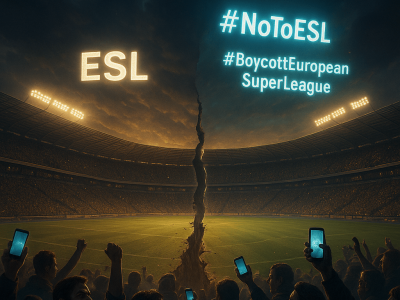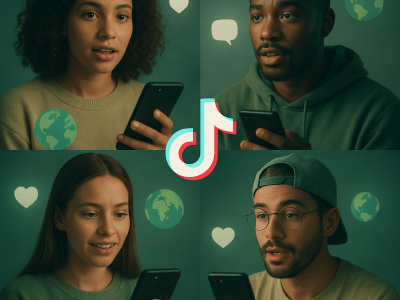In the marketplace of online information, credibility has become a new currency. Facts often compete for attention, algorithms amplify emotion, and expertise may struggle to rise above the noise. In this digital landscape, new communicative practices quietly reshape how we share knowledge and build trust. This is one of the aims of the InterGedi research group, based at the University of Zaragoza, Spain.
Digital communication and Ask an Expert websites
One outstanding example of how experts distribute knowledge is the Ask an Expert website, which allows readers to submit questions and receive written answers directly from verified scientists. At first glance, they may look simple: one question, one answer. But beneath that neat exchange lies a complex interplay of language and intention. Thus, linguistic analyses help us uncover how experts carefully shape their responses -balancing evidence, clarity, and engagement- not just to inform but to connect.
How experts from varied disciplinary backgrounds use words, explanations, and tone becomes a kind of bridge (a dialogic mechanism) that blends institutional rigour with conversational accessibility. According to Rosa Lorés and Pilar Mur-Dueñas, the outcome is that experts ‘recontextualise’ knowledge to make it accessible. They intend to keep the conversation both expert and lay, writing to diverse audiences asynchronously, that is, as if speaking to listeners who may respond later.
Ask an Expert websites may cover a myriad of disciplinary fields which trigger societal interest, such as economics, dietetics, astronomy, psychology, physiotherapy, law, education, or linguistics. In a recent study on environmental discourse published in Language and Dialogue, I examined a representative collection of texts from the MIT Climate Portal, which revolves around climate change and sustainability topics, like carbon footprints, renewable energy, or geoengineering, which experts and users alike may be interested in. Results from this study show that these texts are not merely informative, but strategically dialogic. Experts share knowledge not only about what they know, but also about how they know it -and why that knowledge matters.
The new geography of expertise and credibility
Digital media have dismantled one-way scientific authority. Knowledge no longer flows in a straight line from researchers’ labs to lectures and printed pages. Instead, it circulates across screens through websites, podcasts, newsletters, and social media platforms. This transformation has unsettled traditional hierarchies and opened space for more participatory, dialogic forms of communication.
Credibility online now depends on linguistic cues that set up intention and tone and turn a monologue into a conversation. This is what we call “dialogic markers” in discourse analysis.
Dialogic markers in action
Words and phrases such as we, you, or to put it another way act as connective tissue that makes the text both accurate and approachable. They tell the reader: I know you’re here and I’m writing with you in mind. Adjectives and adverbs (concerning, minuscule, particularly important) let experts show evaluation without arrogance, leading to building trustworthy arguments.
Supporting explanations and everyday analogies serve as catalysts to illustrate important concepts (for example, using the image of how different levels of caffeine affect our body to explain how carbon dioxide concentration impacts the atmosphere). Such dialogic markers make complexity legible without flattening it.
The result is communication that feels both grounded and humane. Findings from the study suggest that credibility is achieved not through detachment but through the exploitation of digital affordances and the pursuit of linguistic empathy, in other words, through the willingness to be precise, delicate, and inclusive.
In digital dialogue, expertise isn’t about sounding clever—it’s about sounding approachable.
–Daniel Pascual
From authority to rapport
Experts endorse an ethics of explanation that is translated into specific linguistic items. One of the most revealing findings is the high frequency of inclusive pronouns such as we, our, and us. These small words carry large social meaning. They collapse the distance between expert and audience, making the disciplinary field a shared and practical concern. Taking an example from the MIT Climate Portal, an expert writes, “When we burn fossil fuels, we release carbon that had once been trapped safely underground”.
The use of the collective references transforms responsibility into solidarity and belonging. This rhetorical choice matters in a time when expertise might be mistaken for elitism. By writing inclusively, experts convert their authoritative position into a bidirectional relationship. They remind readers that knowledge is collaborative and that the scientific “we” can also be civic.
Dialogic strategies: code-glosses and directives
One more strategy by experts lies in frequently using “code glosses”, brief clarifying phrases like that is, for example, or in other words. These inserts may look minor, but they signal transparency and care. They show that the expert is willing to rephrase and meet readers halfway. They are a helpful resource for bridging what Kastberg called ‘knowledge asymmetries’, that is, potentially uneven access to expert information. As a result, introducing code glosses contributes to unpacking disciplinary knowledge and easing the audience’s comprehension.
Directives, which are statements intended to elicit action, invite participation. Readers are not passive consumers of data but co-thinkers in the conversation. Salient examples from the analysis include verbs such as consider, imagine, suppose, or think of it this way. This approach reframes expertise as a relationship between equals rather than a hierarchy. Directives also steer users to take real-world actions in which they are guided to eat, reduce, buy, find, and choose according to the expert’s advice. A last prominent use of directives is to engage users, foster interactivity, and keep them interested (submit your questions, read more, stay informed).
Towards a culture of credible connection
The analysis of environmental Ask an Expert websites also displays that, if credibility fuels digital exchange, language determines its worth. Using pronouns, clarifying statements, and analogies can be regarded as an investment in understanding. Readers gain insight, experts gain visibility, and both sides gain trust. This trust is not blind faith in authority but confidence built in the text through transparency, empathy, and responsiveness. Credibility is not a static property but a shared process that should be negotiated between the writer and the reader.
In that sense, Ask an Expert websites do far more than answer questions. They model how credible communication might look in the digital age, setting it apart from the huge amount of data that permeates social media platforms. These websites may represent digital spaces that are not so popular among the wider public, but where they can find a good match between fact and feeling, evidence and explanation. Ultimately, a phrase as simple as “let’s look at this together” may be the perfect start for the most credible interaction.
Such linguistic attentiveness in Ask an Expert websites shows that accuracy and accessibility are compatible. Trust online cannot be simply declared; it needs to be performed, and it’s possible to match the emotional fluency of the internet expected by users with the moral fluency of clarity required from experts. Against the escalating prominence of “fake science”, these spaces for openness and clarification concerning scientific knowledge in the digital medium help neutralise one of the engines of misinformation: the gap between technical language and public understanding.
Why studying digital practices matters
Rather than considering all this as linguistic subtleties, examining online language offers clues about how we, as a society, negotiate truth and meaning. Digital discourse analysis is essential to comprehend how every new digital practice produces its own grammar of credibility and mechanisms for interaction. Put differently, studying the language of Ask an Expert websites helps us understand what scientists say and how science adapts to new communicative realities.
These lessons become vital as more of our learning, decision-making, and civic life move to discursive practices in the digital medium. The same dialogic strategies that make Ask an Expert websites successful -clarity, empathy, responsiveness- can be found in other digital practices, like blogs, magazines, video-hosting platforms and social media. Likewise, these insights could inform how institutions communicate about public health, economics, technology, and the humanities. Dialogicity may lead to credibility, fostering trust in digital sources, under the premise that better conversations counter louder misinformation.
Applications to education and communication
There are clear pedagogical implications for professionals, educators, and communicators. Learning to analyse and critically consume these digital practices is also a form of digital literacy, as Jones and Hafner highlight in their book Understanding Digital Literacies. It teaches us to read between the lines of online communication and recognise when dialogue is both genuine and performative at the same time. Experts’ efforts to cater to non-experts’ information gaps provide experts with a voice that is relatable and non-experts with tools to understand without feeling patronised. In the end, it assists us in learning to design messages that feel trustworthy and engaging, in the belief that effective digital communication these days is relationship-building, not mere transmission.
So next time you stumble upon an Ask an Expert text on whatever digital platform, don’t just skim the answer. Look at the discourse beneath the surface: the pronouns, the examples, the analogies, the gentle ways the expert anticipates your confusion. In that linguistic choreography lies a clear intention to make knowledge accessible and build a path towards bidirectional relationships and credible sources.
Reference
Pascual, D. (2025). Dialogic markers in Ask an Expert webpages on environmental discourse. Language and Dialogue, 15(1), 156–181. https://doi.org/10.1007/s10758-025-09835-9







